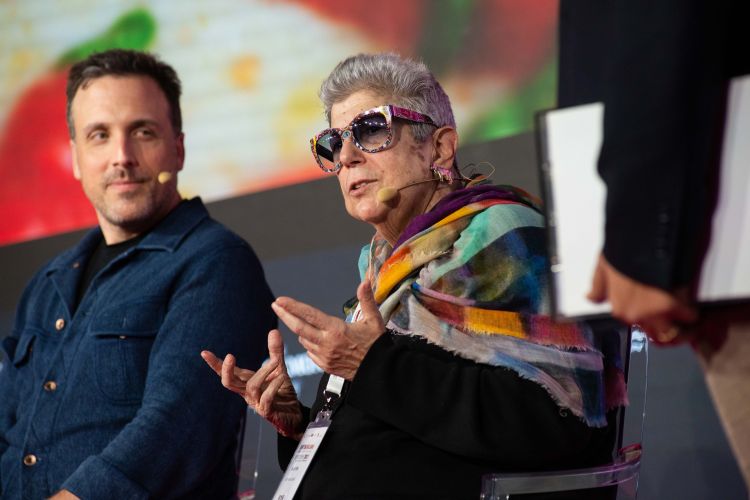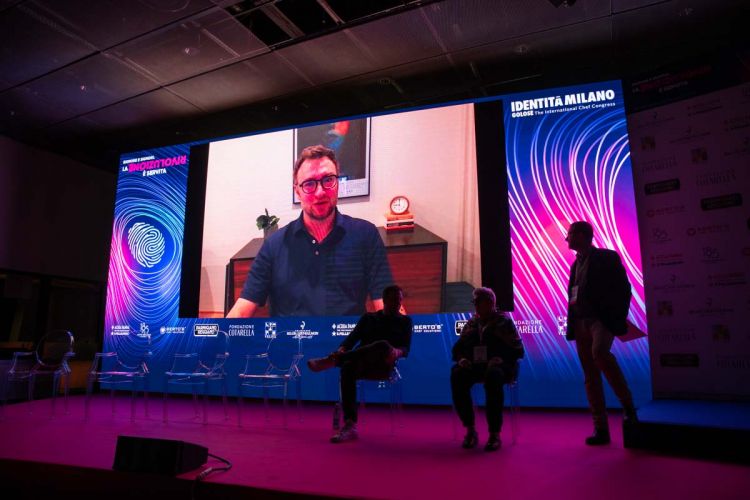Getting to the guts. It is not the passage of a recipe but the conclusion of a speech. On the stage of Identità Milano 2023 the themes covered included cooking on television. In particular, a touching focus on Chef's Table, a documentary series developed for Netflix, where each episode narrates the life and career of a world-famous food personality. A true TV revolution explained by Brian McGinn, author and executive producer of the programme, and journalist Faith Willinger, one of the authors of the series.
"Chef's Table has changed the way food is portrayed on television," McGinn said, "because we did not just tell the story of dishes, but we decided to go in depth by entering the philosophy of life of the individual protagonist of each episode. This is a revolution compared to the past because, in the Netflix TV series, apart from the technical notions, we observe the world from the chef's point of view with attention to aesthetics and ethics. We gets to the guts. And this is a real revolution for cooking programmes.

Faith Willinger under the eyes of Brian McGinn
explained the origins and reasons for her collaboration with the programme's production: “One day
Massimo Bottura called me, told me that there was a crew in Modena that was recording a documentary on him and invited me to join them. The thing that surprised me positively was the fact that they were not simply talking about the food, but that the story focused on the entire universe of the chef. I liked this very much and decided to work with them”.
The testimonies of four of the five Italian protagonists of as many episodes of the series were particularly heartfelt. Corrado Assenza, chef and soul of Caffè Sicilia in Noto, recalled: 'Brian McGinn's first breakfast relaxing in my restaurant was at the end of filming, when a great friendship was also born. After a year, he came back and that day Caffè Sicilia was so full that there was no place to have breakfast either at the tables or at the counter: all the people who were there at that moment did not know that he was the first person responsible for that success”.

David Gelb, the other creator and executive producer of Chef's Table, stranded in Los Angeles by force majeure, sent a video message
The dedication of
Dario Cecchini, butcher at
Antica Macelleria Cecchini in Panzano in Chianti, is for
Faith Willinger, who told the production the names of the Italian protagonists of the series: “I think the episode about me was the only one about a butcher. For this I thank
Faith, my mentor, my sister at heart, the Indiana Jones of Italian cuisine. My beautiful memory of her goes back to when I was young, studying veterinary medicine and had to take care of the family butcher shop because of my parents' illness. Now I am on this stage and I try to be an inspiration to all young artisans”. The American journalist replied promptly: “
Dario gave visibility to butchers when nobody was talking about that kind of craftsmanship by organising an auction of Florentine steaks at the time of the so-called mad cow disease''.
“Meeting the Chef's Table team was devastating for me,” says Gabriele Bonci, baker and owner of Pizzarium in Rome - It was a fortnight in which they unpacked my life. During the two breaks we sat on a terrace talking until it came out who I really was. It was definitely a great opportunity. I was brave, I took the challenge and it's an experience I would definitely do again. McGinn echoed him: “The episode on Bonci was one of the most intense: a story of pride, courage and personal growth.”
Even for
Franco Pepe, the pizzaiolo and owner of
Pepe in grani in Caiazzo, the programme had a key importance: “A feeling that comes overpoweringly: we had a chat at the beginning, I explained in detail ten years of my life and they portrayed how my revolution through the love of pizza created personal and emotional problems for me. The cameras went back to where my father was, where I grew up and trained. There were long interviews that dug into me and brought me closer to my family, settling a moral debt I had with my father.”
This is the real revolution of cooking on TV, the real revolution of Chef's Table: narrating kitchens, narrating lives. Getting into the souls of protagonists and viewers. It takes all this to get to the guts.
Translated into English by Slawka G. Scarso